ESR Profiles
Melissa Kelly
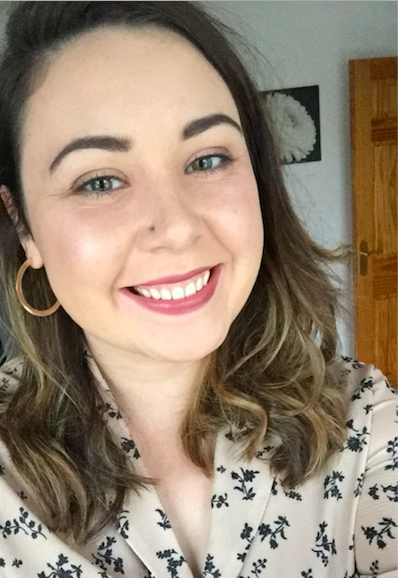
Education:
Melissa holds a M.Sc. degree in Psychological Science with a concentration in Research Methods from the University of Limerick (Republic of Ireland). Previously, she obtained a B.A. in Psychology and a B.A. in Spanish Language from Temple University (United States). She also studied at the University of Oviedo (Spain) in 2015.
Science-related Work Experience:
After completing both Bachelor’s degrees in 2016, Melissa went on to become a behavioural therapist for children with Autism Spectrum Disorder. During this time, she used applied behaviour analysis to carry out specific behavioural interventions and provided one-on-one therapy. In 2017, she then went on to pursue her Master’s degree in Psychological Science, concentrating on Research Methods. During this time, Melissa worked on a variety of projects, ranging from the transcription and analysis of large qualitative data sets to the design of quantitative experiments and performance of advanced statistical analysis. She designed and led two experimental studies on existential, social psychology under the supervision of Dr. Eric Igou from the University of Limerick. She is currently an Early Stage Researcher on the PROTECTED project at Queens University, supervised by Prof Moira Dean. Her project’s purpose is to understand consumer perception of endocrine disruptors in the environment and food chain for the development of efficient risk communication strategies.
Other Professional Points-of-Interest:
Melissa also worked as a data collection agent for STATS, the world’s leading sports data and technology company. There, she used data feeds, video analysis, sports content, and research player tracking to collect data for the 2018 FIFA World Cup
Anteneh Assesfa Desalegn
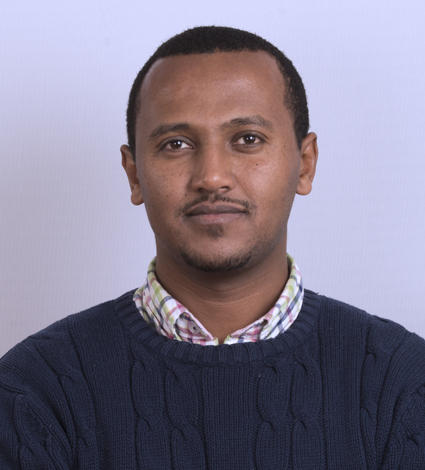
Education:
Anteneh Assefa Desalegn holds MSc in Toxicology from Karolinska Institute, Sweden, 2016. Previously he obtained Bachelor of Pharmacy and MSc in Pharmacology from University of Gondar and Addis Ababa University, Ethiopia.
Science-related Work Experience:
Anteneh had traineeship at European Commission Joint Research Centre for five months after completing his MSc in 2016. During his traineeship, he participated in evaluating the applicability of physiologically based kinetic modelling to investigate interactions in mixtures and support risk assessment. He received the 2017 Biological modelling student travel award from Biological Modeling Specialty Section of Society of Toxicology to present his master’s thesis poster on the 56th SOT Annual Meeting and ToxExpo, Baltimore, Maryland, USA. Before getting his MSc in Toxicology, Anteneh was mainly a lecturer of Pharmacology and Toxicology at Hawassa University in Ethiopia. Currently, he is a PhD student (early stage researcher) in environmental epidemiology at Norwegian Institute of Public Health and University of Oslo. His work will focus on identification of mixtures of contaminants associated with adverse child health outcomes using Norwegian Human Milk Study (HUMIS) cohort.
Other Professional Points-of-Interest:
Anteneh also has interest in predictive toxicology and health risk assessment of chemicals, food additives, and pharmaceuticals. He is certified pharmacist, and a member of Ethiopian Pharmaceutical Association and Society of Toxicology.
Chiara Talia
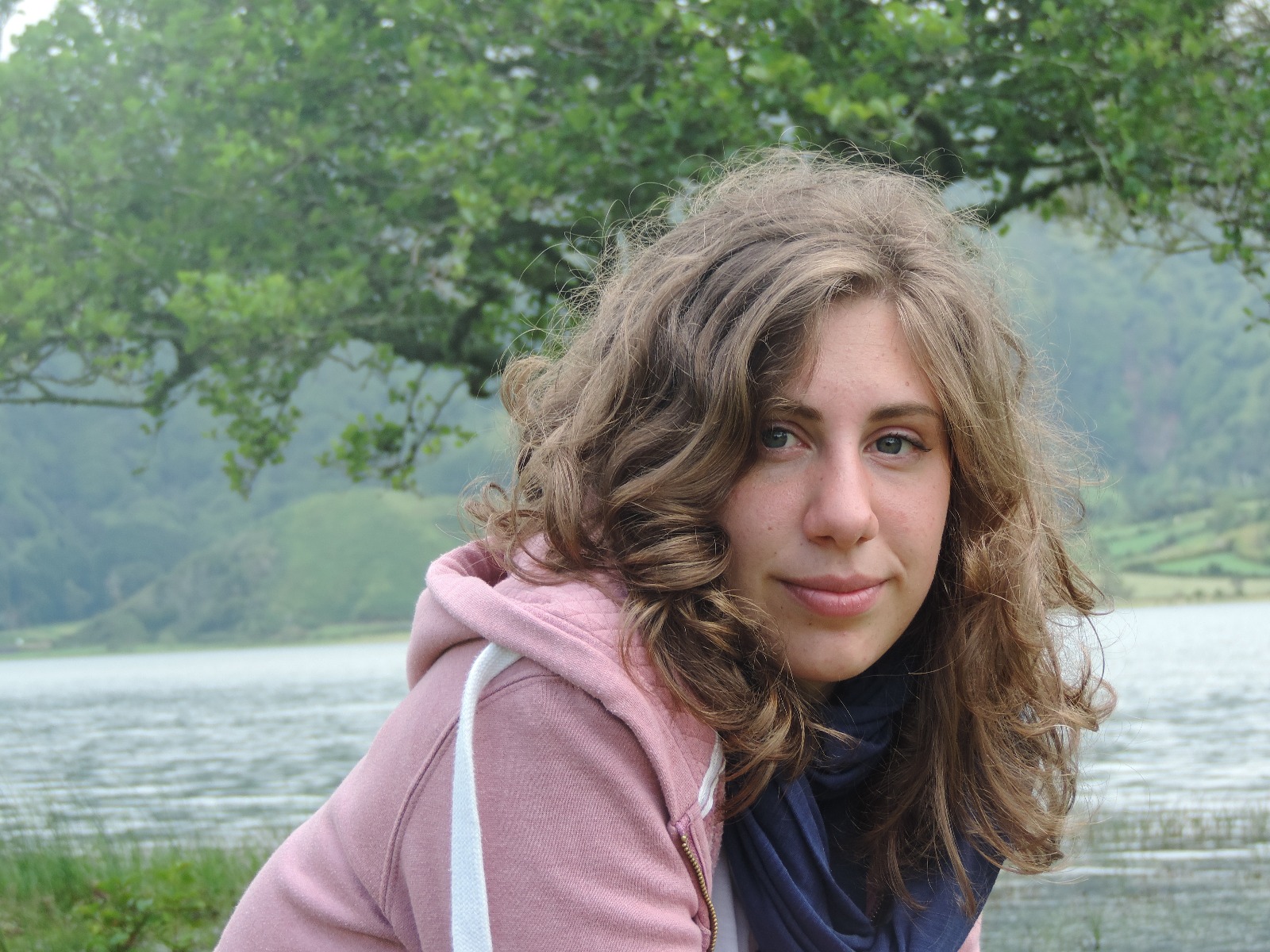
Education:
Chiara Talia recently graduated with honours in Veterinary Medicine from the University of Teramo, Italy. She spent a year of study abroad, thanks to the Erasmus + Programme, at the Escola Universitária Vasco da Gama, Portugal. She also obtained the licence to practise the Veterinary Profession.
Science-related Work Experience:
Chiara carried out her ecotoxicology thesis research project at the Veterinary Pharmacology and Toxicology Department. For the study, ecotoxicological tests were performed to evaluate the toxicity of two samples of sediment of Biferno River (Southern Italy), which is characterised by depletion of fish and benthic macroinvertebrate population. The fish embryo toxicity test with zebrafish and embryotoxicity test with Mediterranean mussels were carried out. Chiara worked with in vivo models and improved her knowledge of reproduction and embryo development. Furthermore, for the non-monotonic dose-response obtained as results, it was reasonable to think that the lethal and sub-lethal effects on embryos were caused by emerging contaminants, like endocrine disruptors. This is how she became interested in the new challenge of toxicology represented by endocrine disruptors. Chiara carried out a 10 week internship at the Veterinary University Teaching Hospital, rotating in different areas (small animal clinics and surgery, horse medicine, infectious disease, obstetrics and gynaecology). During the summer of 2016 she undertook a 6 week internship at the Veterinary Services, of the Local Public Health Board. She is currently undertaking full-time research, leading to a PhD in the project “Health impacts of complex mixtures on human foetal and placental health” at the Institute of Medical Sciences (University of Aberdeen), to answer major knowledge gaps with regard to human foetal exposure and endocrine disruptor bioactivity.
Other Professional Points-of-Interest:
Chiara is strongly interested in zebrafish as an animal vertebrate model for toxicology. Her main fields of interest among the Veterinary Sciences are endocrinology and oncology. She speaks Italian (mothertongue), English and Portuguese.
Oluwatobi Kolawole

Education:
Oluwatobi is a recent MSc. Advanced food safety graduate from Queens University Belfast. Previously, he obtained a diploma in animal health and production technology, and B.Tech degree in microbiology from Federal University of Technology, Nigeria.
Science-related Work Experience:
He carried out a mini-project on the health effects of mycotoxin on broiler chickens as part of the requirement for his B.Tech programme. Also, during his internship and research assistantship at the International Institute of Tropical Agriculture (IITA), he participated in the development of a fungus-based biocontol agent (Aflasafe™) to protect feed and food from the deadly aflatoxin. After the completion of his bachelors degree in 2015, Oluwatobi was awarded a fully funded commonwealth scholarship to study a masters course in advanced food safety at Queens University Belfast (2016-2017). He is currently undertaking a PhD funded by MSCA-ITN at the same university under the supervision of Prof. Chris Elliott, which focuses on the determination of farm animal exposure to a large number of mycotoxins and the assessment of novel mycotoxin binders
Other Professional Points-of-Interest:
Oluwatobi is a member of Nigerian Society for Microbiology (NSM), and an intending member of Chartered Management Institute (CMI) and Institute of Food Science Technology (IFST). He loves teaching and mentoring.
Gustavo G. Limon
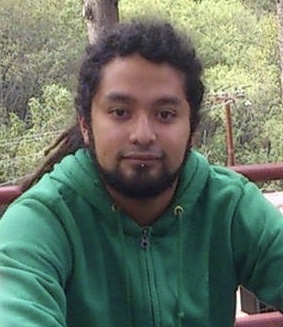
Education:
Gustavo Guerrero Limón holds a BSc in Marine Biology by the Autonomous University of Yucatan (UADY), Mexico and an Erasmus mundus MSc in Marine Environment and Resources, a joint program between the University of the Basque Country, the University of Bordeaux and the University of Liege.
Science-related Work Experience:
Two main fields have always been within the interests of Gustavo: fisheries and pollution. The first one gave Gustavo his first-hand experiences inside an actual working environment in marine sciences at the National Fisheries Institute (INAPESCA). But since pollution has been within his concerns, Gustavo carried out a research stay at the EPOMEX Institute (Campeche, Mexico) where he mastered skills in Wildlife ecotoxicology (working with crocodiles). Here he would discover his passion on the thrilling world of ecotoxicology and related fields, and of course, here is where he learned some of the skills that he’d need afterwards in his life as researcher. During his master thesis he wanted to test the biochemical responses of several organs of the flatfish (Solea senegalensis) after Cadmium and Benzo(a)pyrene exposure. He applied a battery of 4 biomarkers to measure these responses on brain and liver cells. Currently he’s pursuing a PhD within the framework of the project “In vivo zebrafish larvae test on endocrine disruptors and mixtures” at the University of Liege, where he expects to unravel the mysteries that some EDC compounds may have on the zebrafish.
Other Professional Points-of-Interest:
Gustavo has been resourceful during his marine researcher life, which is why he’s devoted a lot of his time and effort to keep learning from different sources, from lab experiences to field trips. He is capable of performing Scientific Scuba diving to assess the health of coral reefs and/or restore them in the Caribbean Sea and at the same time capable of managing lab techniques to perform tests such as biochemical analyses regarding enzymes and their responses to contamination exposure. Gustavo speaks Spanish (native speaker), English and French. Since he’s devoted to bringing science to people, he’s given lectures as guest speaker to people of different backgrounds. Also, he’s been a tourist guide in the Riviera Maya where he taught everything he knew to his tourist groups. He is always keen to create awareness of the current environmental problems that we are facing.
Tarek Lahjouji
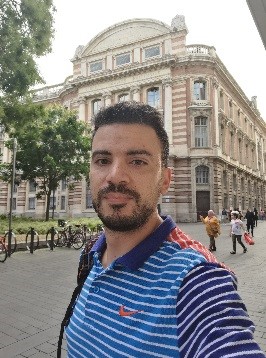
Education:
Tarek Lahjouji holds an M.Sc. from University of Sidi Mohammed Ben Abdellah, in Physiology, Pharmacology, and Biomedical Science with four years in doctoral research in mycotoxins (patulin in apples and grapes). He is keen with a strong wish to pursue his research career.
Science-related Work Experience:
Tarek has gained academic research-related and work-related experience during his different internships and active participation in conferences. He obtained his B.Sc. in 2011 with neuroendocrinology research on the interaction between both systems the nervous and endocrine systems. Simultaneously, he completed a nine month practicum placement at the research laboratory of Sidi Mohammed Ben Abdellah University in Morocco. In 2013, he obtained his M.Sc. in Physiology, Pharmacology, and Biomedical Science. He carried out a three month internship in Claude Bernard Lyon 1 University and a research project that tackled the thyroid hormones T3 and T4. During 2013–2017, Tarek was a doctoral candidate in Morocco. His research project sheds light on mycotoxins (patulin in apples and grapes). To reinforce his research, he undertook a laboratory internship at TOXALIM Research Centre in Food Toxicology which is Joint Research Unit of INRA in Toulouse, France. Furthermore, Tarek undertook a tutorship to deliver lessons of vegetal, animal and cellular biology to the university undergraduate students. In addition, he participated actively in several seminars and conferences and delivered his research findings in different countries including Morocco and Tunisia. Currently, he is undertaking a PhD at National Institute of Agronomic Research, TOXALIM, which tackles “the effects of the mycotoxin Zearalenone and co-occurring mycotoxin mixtures on the function of the intestine”
Other Professional Points-of-Interest:
Tarek is a dynamic active member of the international nonprofit organization -ENACTUS MOROCCO- that operates in more than 100 countries and inspires students to initiate community development projects in order to integrate people and assist them to develop their livelihoods and living conditions. Also, he has been a Taekwondo athlete for several years. He also speaks fluent French and Arabic and he is qualified to use English professionally.
Ajay Yadav

Education:
Ajay Yadav gained a Master’s degree in Molecular Biology from Vrije Universiteit Brussel, Belgium in 2015 and has a Bachelor’s degree in Molecular Medicine from University of Erlangen, Germany. Ajay wants to devote his energy and scientific potential to the improvement of human life.
Science-related Work Experience:
During his master’s thesis he worked on embryotoxicity “Evaluation of the potential embryotoxic effects of nanomaterials using the embryonic stem cell test (EST)”. The EST is an in vitro test validated by European centre for the validation of alternative methods and classifies the chemical compounds into strong, weak and not embryotoxicants. Part of this work was published in journal of Toxicology in Vitro ‘’Morphological observation of embryoid bodies completes the in vitro evaluation of nanomaterial embryotoxicity in the embryonic stem cell test” as a co-author in June 2015.
For his Bachelor thesis, Ajay worked on a project “Analysis of the muco-cutaneous junction (MCJ) of the human eyelid margin with different biomarkers”. The study was undertaken to better characterise the location of MCJ by analyzing the expression of different proteins, which can be used as possible markers for diseases affecting the human eyelid margin, Meibomian glands, such as Dry eye diseases, Meibomian glands Dysfunction and MCJ carcinomas. His findings were published in Journal Annals of Anatomy “Characterization of the mucocutaneous junction of the human eyelid margin and meibomian glands with different biomarkers” as a co-author in 2012.
Currently he is undertaking a PhD (Norwegian University of Life Sciences, Oslo) with the aim to understand the effect of persistent organic pollutants on neurodevelopment and gut microbiota composition in animal models.
Other Professional Points-of-Interest:
Ajay can speak English, German and Hindi as foreign languages.
Maria Christou

Education:
Maria Christou is a recent MSc. In Environmental Sciences from the University of Crete and is keen to pursue a research career in fish toxicology.
Science-related Work Experience:
Maria’s research has focused mainly on zebrafish examining the effects of environmental parameters on the life traits of zebrafish. As a member of the Laboratory of Fish Biology in the University of Crete, Maria has also worked on the effects of cyanobacterial extracts on the early life stages of zebrafish. She has also worked on aquaculture species of the Mediterranean Sea, mainly sea bream and sea bass, conducting quality control of samples from aquaculture facilities in Greece. She has also participated in a European project aiming in the development of a platform for data management and analysis to assist European fish aquaculture in its development towards higher performance and competitiveness. During the summer of 2011 she undertook an internship at the Hellenic Center for Marine Research in Heraklion where she studied the feeding and preying behavior of Octopus vulgaris on crabs, mussels and hermit crabs. She is currently undertaking a PhD (Norwegian University of Life Sciences, Oslo) which examines “Exposure effects of defined realistic mixtures of POPs on zebrafish development, behaviour, and population”. Behavioural outcomes, combined with morphology and transcriptomics studies will be used to investigate exposure effects on neurodevelopment, immune function and their interactions.
Other Professional Points-of-Interest:
Maria holds an Advanced Scuba Diving certificate and has a work experience as a lifeguard. She speaks fluent Greek and French.
Que Thi Doan
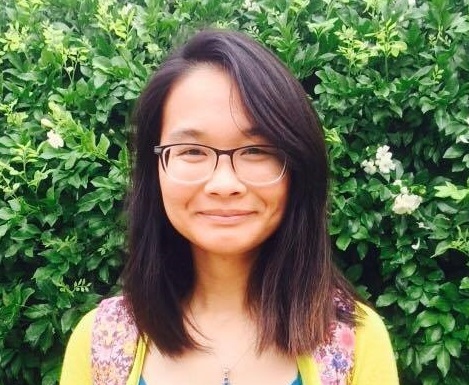
Education:
Que Thi Doan is a recent MSc. Marine Environment and Resources graduated from an ERASMUS MUNDUS jointed programme. She is interested in Toxicology regarding human and environment health.
Science-related Work Experience:
After completing her Bachelor in Biochemistry in Vietnam, Que Thi Doan was awarded an ERASMUS MUNDUS scholarship 2014-2016 for EU Marine Environment and Resources. She did her six-month master thesis in the University of Queensland in Australia. The aim of this study was to fine-tuning polymer-based biomonitoring tools for screening of persistent, bioaccumulative and toxic contaminants in lipid containing matrices. The work was then selected for a platform presentation in the 19th International Symposium on Pollutant Responses in Marine Organisms (PRIMO 19), Matsuyama, Japan, 2017.
She also worked as an intern in cell biology in the Environmental Toxicology Research Group at the University of Basque Country in Spain from this September 2016 to January 2017. This work was involved in applying histology, cloning and quantitative Real Time Polymerase Chain Reaction to study apoptosis marker genes on the development of oocytes in Merluccius merluccius (Hake fish) related to xenoestrogen exposure. This work contributed to the project titled “Oocyte Development in Fish: Differentiation and Maturation towards Fertilization vs Atresia” to be presented in two congresses, “Molecular and cellular mechanisms of oocyte atresia in hake (Merluccius merluccius)”, PRIMO19 Matsuyama, Japan, 2017, and “In search for the trigger of oocyte atresia in European hake (Merluccius merluccius)”, XI Congress of Iberian Association for Comparative Endocrinology, Vigo, Spain, 2017.
She is currently undertaking a PhD in the University of Liège. She is working on the health impacts of exposure to mixtures of endocrine disruptors in drinking water by aryl hydrocarbon receptor transactivation assays both in vitro by genetically modified cell-based bioassays and in vivo tests of gene and/or protein expressions in zebrafish.
Vittoria Mallia
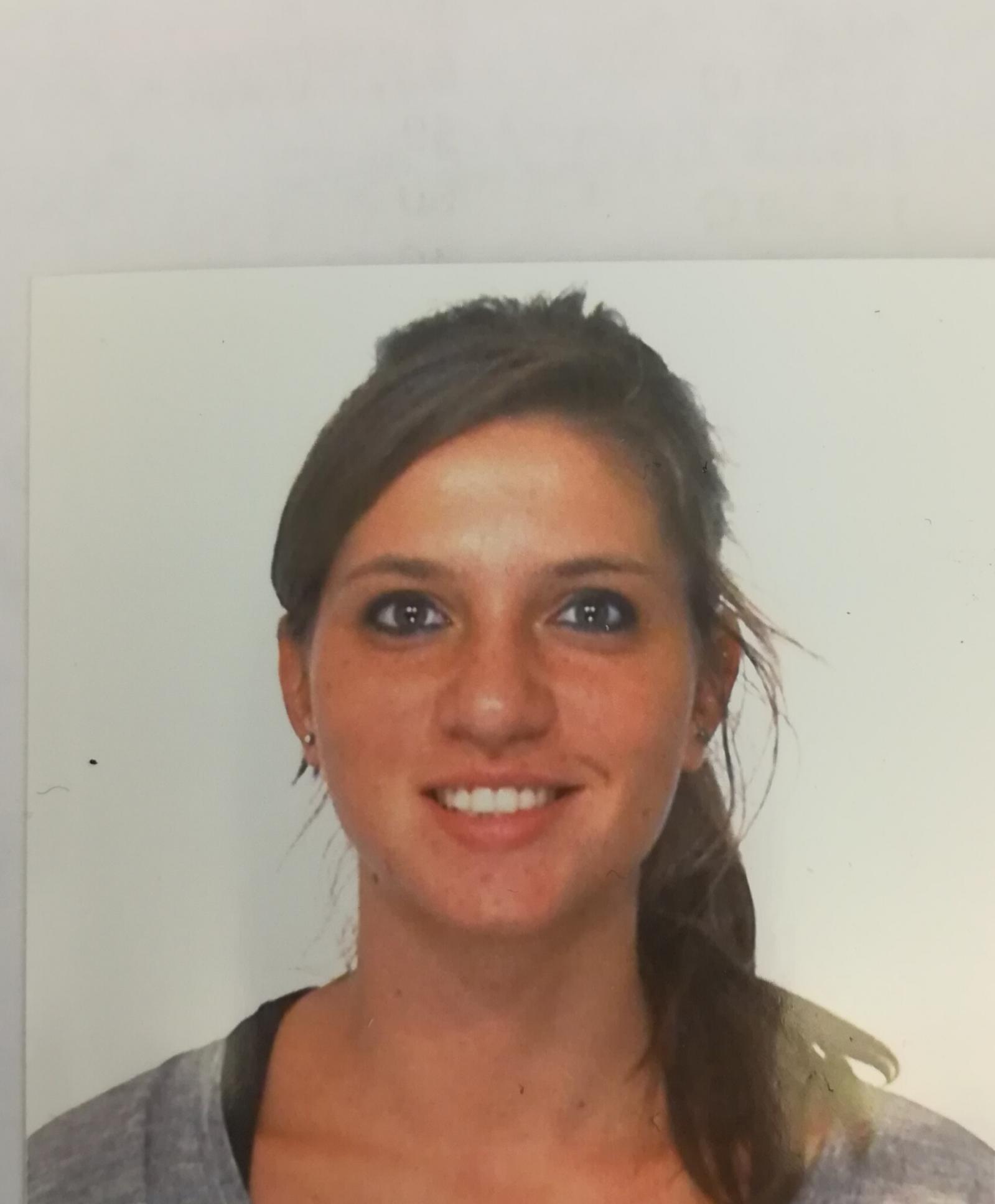
Education:
Vittoria Mallia is an MSc. Organic Chemistry graduate (May 2015) from University of Perugia, Italy. Previously, she obtained two bachelor degrees from University of Perugia (the first one focused on Chemistry of Arts and Restoration, and the second one centred on Chemistry). Vittoria is keen to pursue a career in research.
Science-related Work Experience:
Thanks to work completed in Vittoria’s MSc thesis, she has undertaken both the practical/synthetic and the in silico/virtual branches of a chemist's life. During her MSc degree, entitled "Dengue virus drugs: in silico screening in NS3 cavity and pharmacokinetic optimization", she worked in the pharmaceutical sector, learning about drug discovery, virtual screening and pharmacokinetics.
Vittoria spent five months (October 2015-March 2016) at the University of Reims (Champagne-Ardenne), France undertaking a European internship (with a scholarship). She has worked in the environmental field of Chemistry with research focused on quantification and removal of organic pollutants (drugs) from water and soil. She also learned French during the internship, reaching the B2 level (European Certificate, DELF).
In November 2016 she passed the Qualifying State Examination to Chemists Register in Perugia (Italy), simultaneously continuing her education with training at the University of Perugia (lipidomic, metabolism, LC-MS, GS-MS and chemoinformatic tools) from October 2016 to June 2017. In November 2016 she also attended the 1st MS Residue School organised by the Italian Chemical Society at the IZSUM in Perugia, Italy.
She is currently undertaking a PhD (Norwegian Veterinary Institute and University of Oslo) entitled “Endocrine disruptor compounds in cyanobacteria”. She will analyse extracts from cyanobacteria (photosynthetic, nitrogen-fixing bacteria that live in a wide variety of moist soils and water) to study and identify compounds produced by them, and their activity as endocrine disruptors.
Other Professional Points-of-Interest:
Vittoria has experienced different jobs while she was a student/intern: waitress, private teacher of Math, Physics and Chemistry, photographer and journalist for a website and for some football teams, animator for children and commercial manager for an advertising agency. She has many interests: charity work (missionary travels in Amazonia and in a Croatian pediatric hospital); photography (she is the president and responsible for the exposition of a photographic association), running, equitation, traveling, reading and writing. She is a blood donor for seven years. She speaks Italian (mother tongue), French (DELF B2) and English (IELTS 6.5).
Elizabeth Goya Jorge
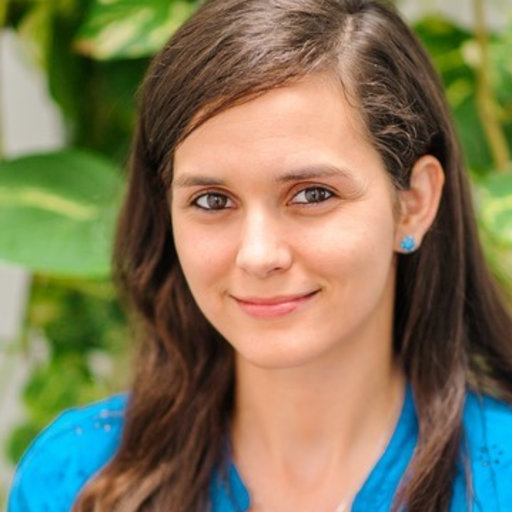
Education:
Elizabeth Goya Jorge obtained her Master´s degree in Pharmaceutical Sciences from the Universidad Central “Marta Abreu” de las Villas (Cuba) in 2016. A year earlier, she graduated with honors as a Bachelor in Pharmacy from the same institution, where she was also training as a graduate teaching assistant and a junior researcher during two years.
Science-related Work Experience:
Elizabeth carried out the research that led to her Bachelor´s and Master´s theses in the field of the antioxidant activity, especially focused on the free radical scavenging capacity of compounds commonly found as secondary metabolites of plants. In this sense, she conducted in silico and in vitro determinations, creating computational tools experimentally validated to predict the antiradical activity of compounds, using DPPH assay results of thousands of chemical structures with a wide diversity. An artificial neural network was developed with predictive purposes, and it was published in the International Journal of Molecular Sciences by Elizabeth (first author) and her co-workers in 2016. She worked on a collaborative project with the Equipe de Chimie Moléculaire from the Conservatoire National des Arts et Métiers (CNAM, Paris). This study consisted of exploring the obtaining process and the antioxidant activity of synthetic compounds as benzalacetones and coumarin derivatives. Results from this project were published as two Proceeding Papers of the International Conference MOL2NET. During November to December of 2016 she attended to a practical lab training in analytical and organic chemistry at CNAM. As part of a NORTH-SOUTH-SOUTH project with the Vrije Universiteit Brussel during 2017, she worked in the topic of Chromatographic Fingerprint Analysis of plant derivative products. The aim of this project was to use a combination of analytical and chemoinformatic tools to develop, optimise and validate natural products, especially potential herbal medicines. Elizabeth has now been admitted at the Doctoral School of the Universitat de València to develop her PhD in the Chemistry Program. She works as a research fellow in ProtoQSAR SL, with the purpose of in silico modeling the endocrine disrupting activity of compounds and mixtures under the MSCA_ITN “PROTECTED” project grants.
Other Professional Points-of-Interest:
Elizabeth has a great interest in the theoretical elucidation of the mechanisms of action of endocrine disrupting compounds. She is a licensed pharmacist and was trained as university teaching assistant in the field of pharmacology and pharmacotherapy. She speaks Spanish as her mother tongue and is able to use English for scientific purposes.
Solomon Oguche
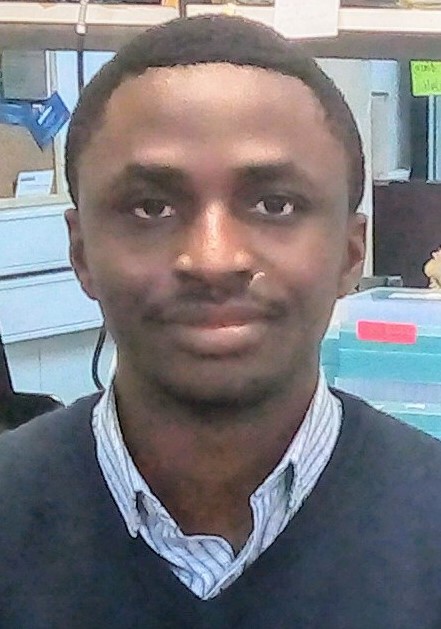
Education:
I graduated with a Bachelors of Science in Biochemistry in 2010 and also completed a MSc in the same field from the Ahmadu Bello University. My key research interests are broadly in food and chemical toxicity and their roles in the etiology of chronic diseases, particularly cancers.
Science-related Work Experience:
Beginning in 2015, I work as a research scientist at the National Biotechnology Development Agency of Nigeria were I participated in developing and promoting the adoption of biotechnology products and ideas in agriculture and medicine. Prior to that, I interned in the Chemical Pathology laboratory at the National Hospital, Abuja, where I gained valuable laboratory experience beyond school and developed a keener interest in laboratory research. My research in food-based chemoprevention of chemically-induced cancers was presented at the AORTIC conference in Kigali in 2017. In 2010 and 2014, I led advocacy projects in HIV/AIDS and adolescent reproductive health in rural communities in Southwestern Nigeria. It is my interest in expanding knowledge in disease dynamics in resource constrained settings and promoting sustainable response to diseases at the population level. I am currently undertaking a PhD studies in Cell and Molecular Biology (Universidad Austral de Chile) where my research will focus on developing exosome-based biomarkers for estrogen exposure in fish. This research should broaden our understanding of the molecular effects of and responses to exogenous estrogen as an example of endocrine disruptors and drive improvements in food safety and aquaculture operations.
Other Professional Points-of-Interest:
I am a trained Public Health practitioner and currently developing an interest in nature photography
Mazia Amber

Education:
Mazia Amber holds Master’s Degree in Biomedical Engineering with specialisation in Molecular and Cellular Biotherapies from Paris Descartes University in France, which was fully funded by the French Government’s prestigious Eiffel Excellence Scholarship (2014-2016). She also has a background in Biotechnology and microbiology at Bachelor’s level.
Science-related Work Experience:
During her Masters, Mazia completed three different internships at INSERM UMR’s in France. In 2015, she did two internships at INSERM UMR-1138, Centre de Recherché des Cordeliers, Paris where she worked on studying differentiation potential of FACS sorted mice gingival fibroblasts and impact of interaction between MSX-2 and Wnt inhibitors on dentinogenesis in transgenic mice. She completed her Masters project of six months at Institute Gustave Roussy, Villejuif, France on “In-vitro modeling of tumor microenvironment interactions in diffused intrinsic pontine gliomas (DIPG)”. DIPG is pediatric tumor, with the average survival rate of patients being less than one year after diagnosis. To date, there is no treatment available for DIPG. Chemotherapy is ineffective due to the intact blood brain barrier (BBB), while Radiotherapy provides only transient symptom relief. Very little was known about the biology of this tumor until recently research groups succeeded in developing an in-vivo model for DIPG. For this reason, Mazia was setting up in-vitro assays to investigate proliferation, invasion and migration glioma stem cells (GSC’s), hoping that results obtained from her internship will help to better understand interactions of this tumor type in-vivo. Currently she is undertaking her PhD under supervision of Prof Lisa Connolly at Institute for Global Food Security (IGFS), Queen’s University of Belfast, UK. Her work is mainly focused on the development of novel in-vitro bioassays for the detection of endocrine disruptors and their mixtures by identifying new targets and linking them to adverse outcome pathways
Other Professional Points-of-Interest:
Mazia is strongly interested in the development of in-vitro bioassays for detection of endocrine disruptors. She is fluent in English and has native or bilingual proficiency for Urdu, Hindi and Punjabi. She also has some working proficiency for the French language.
Clemence Budin
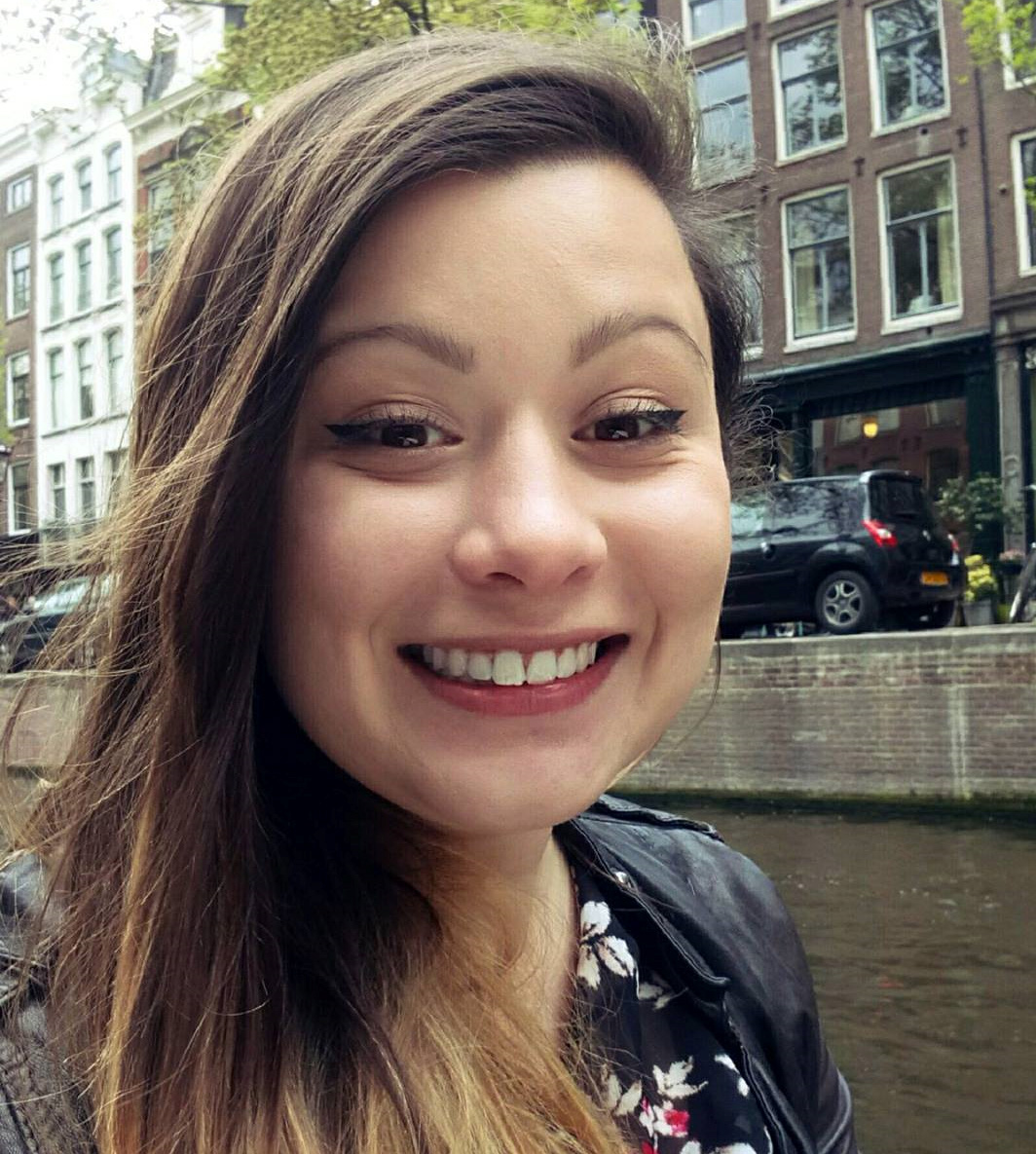
Education:
Clémence graduated from the polytechnic engineering school, Polytech Clermont-Ferrand, as a biological engineer specializing in Biotechnologies for the Environment. Having graduated with an Engineering degree she is now pursuing her career in research as a Ph.D. student among the ProtectED program.
Science-related Work Experience:
Due to her Engineering studies Clémence has both a research- and industrial-related background and has therefore experience in both fields. She took part in several R&D projects and undertook work-placements within several companies and one university. In 2017, she spent six months working on the use of fungal metabolism for the breakdown of persistent organic pollutants (POP) at MicroLife Solutions in Amsterdam. In 2016, Clémence worked with the Micro-Array Department of the University of Amsterdam on a research project conducted by Syngenta, studying miRNA expression variations in cauliflower seeds. This same year, Clémence was also involved in R&D projects conducted by French SMEs Cell & Co (method validation) and Stevia Natura (pilot-unit implementation). Now, she is currently undertaking her Ph.D. with BioDetection Systems in Amsterdam, seeking to develop a combined chemical-biological detection system for mixtures of mycotoxin and persistent organic pollutants (POP) affecting human development. Her particular focus is on how those mixtures affect the early development of gut microbiota, and associated long-term health impacts.
Other Professional Points-of-Interest:
Clémence has explored both applied and fundamental research, and is particularly interested in innovations in biotechnologies.
Berenice Collet

Education:
Bérénice Collet graduated from the University of Sciences and Technology of Lille (France). She received her master's degree with a specialisation in Biotechnologies: Cellular and Molecular Engineering. She has a strong interest in human development, reproduction and fertility.
Science-related Work Experience:
The theoretical courses of Bérénice’s MSc were completed by workshops, projects and 11 months of internship spread on the two-year program. In 2015, Bérénice chose to do her internship within Dr. Ina Dobrinski’s laboratory at the Department of Comparative Biology and Experimental Medicine of the University of Calgary, Canada. The aim of the project was to differentiate induced Pluripotent Stem Cells into male germline cells in order to complete spermatogenesis. This work was presented as a potential alternative treatment for infertility. In 2016, she dedicated the last part of her MSc to the study of the consequences of an in utero foetal exposure to chemicals (genistein and DEHP) on the male reproductive system. Her master’s thesis was supervised by Dr. Martine Culty at the Research Institute of the McGill University Health Centre (Montreal, Canada).This two-step work experience allowed Bérénice to study both potential origins of reproductive disorders and possible treatments for infertile couples. Thanks to the PROTECTED project, she is currently undertaking a PhD at BioDetection Systems (Amsterdam, Netherlands), supervised by Dr. Bart van der Burg. Her PhD’s purpose is to “develop a combined chemical-biological detection system for endocrine disruptor mixtures affecting the male reproductive system.”
Other Professional Points-of-Interest:
Bérénice received a practical and theoretical animal training according to the Canadian Council on Animal Care. She also attended workshops including the “Spermatogenesis and Staging the Cycle of the Seminiferous Epithelium of mouse, rat and man” (McGill University). Bérénice’s results were presented at the 43rd Annual Conference of the American Society of Andrology (2017).
